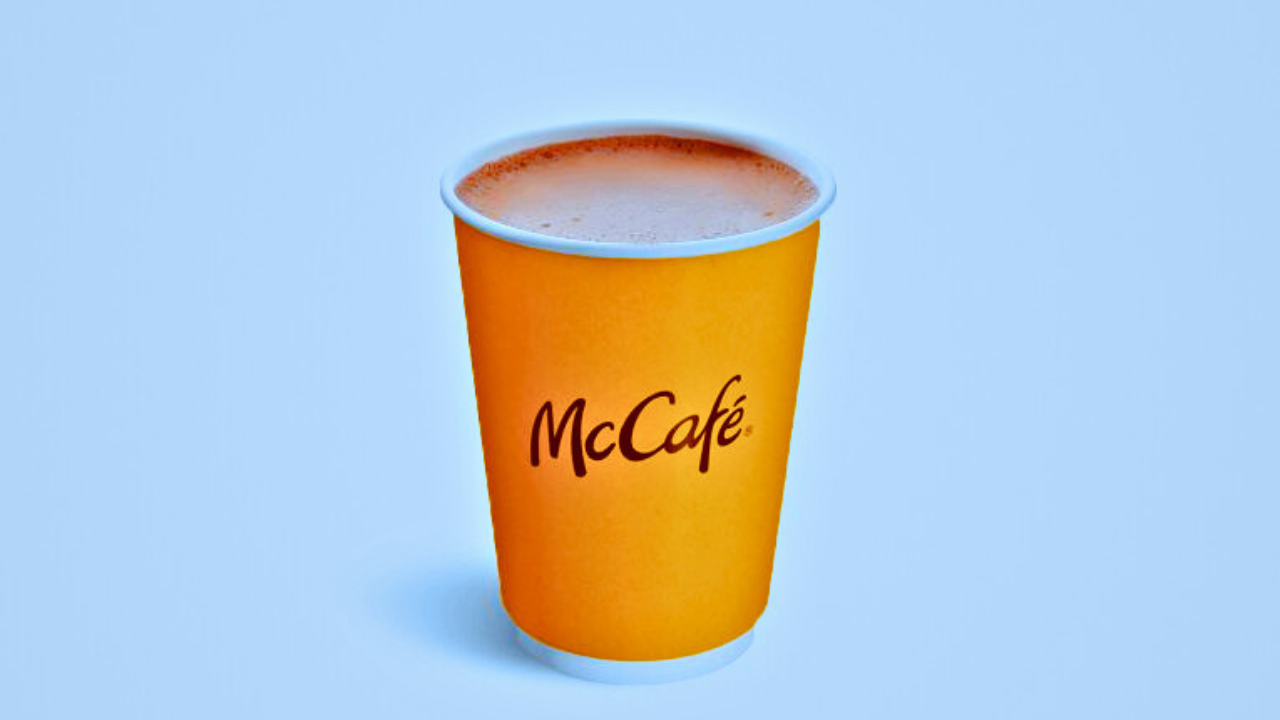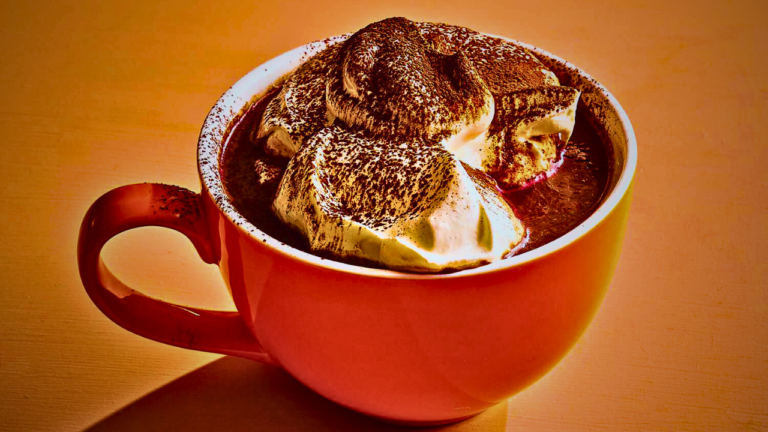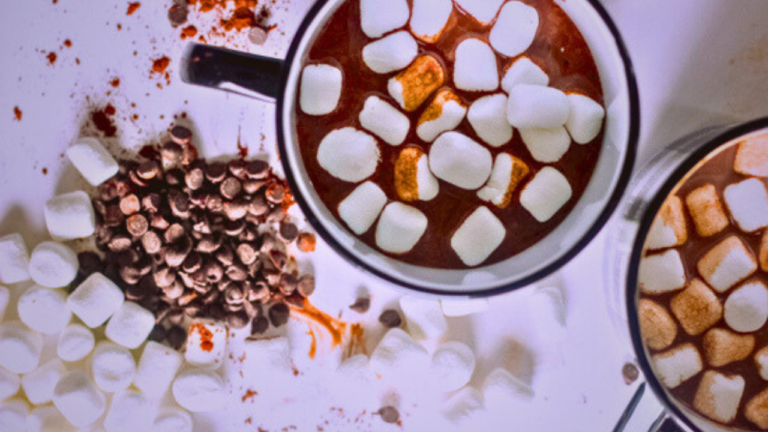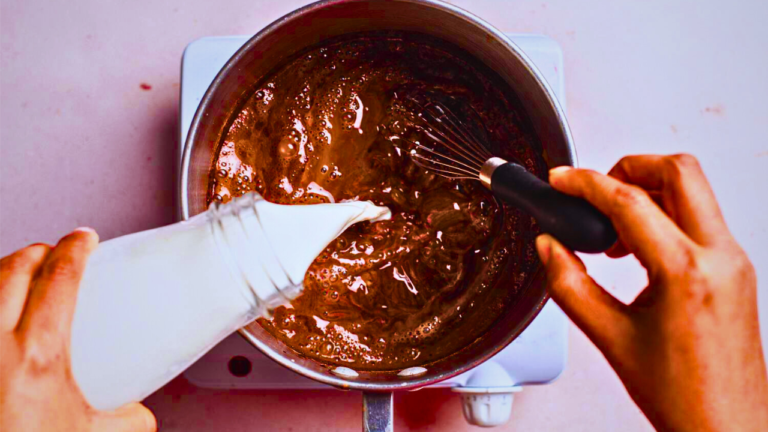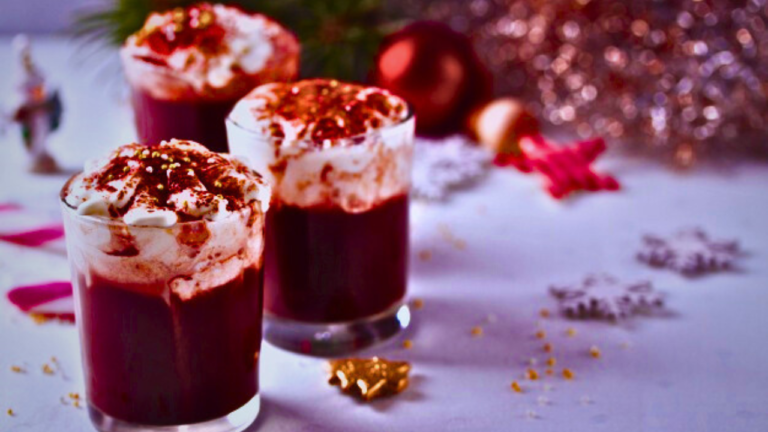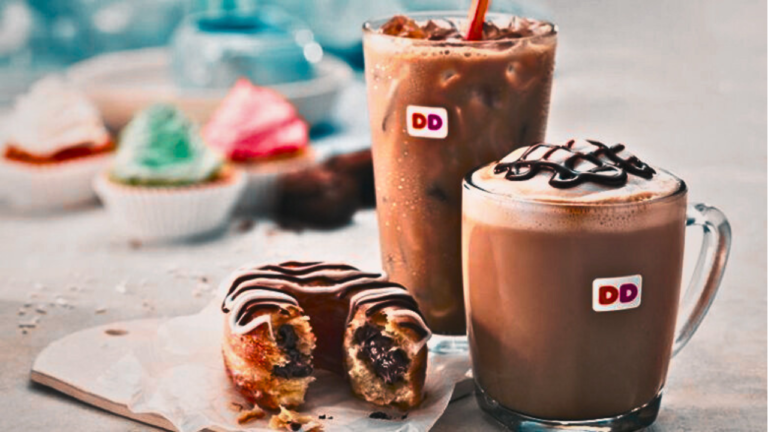Is Mcdonalds Hot Chocolate Caffeine Free?
Steaming up to your lips, a cup of McDonald’s hot chocolate can be a rich and indulgent treat, especially on a cold day. But one common question seen in the minds of consumers relishing the deliciousness of this drink is, “Does McDonald’s hot chocolate contain caffeine?”. So, you’re in the right place! Let us help you understand just what goes into a McDonald’s hot chocolate from a caffeine perspective.
After all, knowing what you’re consuming is essential, not just for your health concerns, but also to get the maximum enjoyment out of every sip!
The Purity of McDonald’s Hot Chocolate
When it comes to the purity of hot chocolate, we’re talking about the ingredients used and how they can influence the overall profile of your favorite warm drink, such as its caffeine content. Let’s delve into an understanding of McDonald’s hot chocolate’s formulation:
- The Cocoa Base: How does it contribute to the overall caffeine distribution?
- Milk and sugar: Do they have a role in the caffeine content?
- Additional Flavorings: Could they add some caffeine?
You might be here wondering if the steaming cup of McDonald’s hot chocolate will keep you awake at night or if it will interfere with your caffeine intake constraints. Curiosity is a wonderful thing, isn’t it? So, stay with us as we explore the facts and debunk the myths.
Read also: Is Hot Chocolate Powder The Same As Cocoa Powder?
What ingredients does McDonald’s use in their hot chocolate?
From sizzling burgers to crispy fries, McDonald’s continuous quest for innovative culinary delights has earned them a pride of place in the spotlight. However, today, we turn our gaze towards a slightly lesser-known star of the McDonald’s menu: their hot chocolate. So, let’s dive right in, shall we?
The chief elements of McDonald’s hot chocolate are water and a proprietary hot chocolate powder, a blend that transforms into a velvety fountain of heavenly chocolatey goodness when properly combined. This magic powder, as you might expect, is where we need to focus our attention. It comprises the following primary ingredients:
- Sugar provides the fundamental sweetness that balances out the otherwise raw bitterness of cocoa.
- Cocoa Processed with Alkali: Alkali processing enhances the chocolate’s color and flavor, making it much more appealing.
- Coconut Fat: It adds body and richness to the hot chocolate, yielding that indulgent, creamy texture we all love.
- Non-Dairy Creamer: This is used instead of standard dairy cream for its superior storage stability and the consistency it imparts to the beverage.
- Less than 2% of Salt, Sodium Aluminosilicate, Mono and Diglycerides, and Dipotassium Phosphate: These seemingly sophisticated components play crucial roles in preserving product quality, enhancing texture, preventing clumping, and maintaining the delightful creamy feel of the drink.
However, one might wonder, “Well, where’s the caffeine?”. This is where it gets interesting. It’s not on the list. The absence of caffeine-related ingredients in McDonald’s hot chocolate is conspicuous. A traditional cup of hot chocolate may contain caffeine due to the natural caffeine content in cocoa. Still, it seems that McDonald’s rendition of hot chocolate positions itself differently.
This is not to imply that the McDonald’s hot chocolate blend does not contain traces of caffeine. Cocoa naturally contains caffeine, albeit in relatively small doses. However, without explicit mention of caffeine-containing additives like coffee or pure caffeine in the ingredient list, it’s safe to assume that any caffeine present in McDonald’s hot chocolate is relatively negligible.
Of course, it’s important to note that everyone’s sensitivity to caffeine differs, and what’s negligible to one person might not be for another. You are the best judge of your own caffeine tolerance.
Does McDonald’s provide nutritional information for their beverages?
Yes, indeed. McDonald’s does provide nutritional information for all their beverages, including hot chocolate. They take their commitment to transparency very seriously. Therefore, consumers can easily access detailed ingredient lists and nutritional values directly from their website or in-store.
When considering McDonald’s hot chocolate, the nutritional information is quite comprehensive. It covers aspects such as calories, fats, carbohydrates, proteins, and salts. But what you may be specifically interested in is the caffeine content, right? Well, don’t worry; they’ve got that covered too.
Here’s a quick sneak peek into the basic nutritional breakdown of a medium McDonald’s hot chocolate:
| component | quantity |
|---|---|
| Calories | 370 kcal |
| Fat | 12 grams |
| Carbohydrates | 52 grams |
| Protein | 13 grams |
| Salt | 0.4 grams |
| Caffeine | Contains some |
Note: These values can vary slightly based on size and regional ingredient specifications.
So, remember! Whether you are watching your caffeine intake out of personal preference, for health reasons, or if you simply enjoy knowing what’s in your cup, McDonald’s readily provides you with all this critical information.
Is there caffeine in typical hot chocolate recipes?
When it comes to hot chocolate, it’s a familiar sight and flavor for many of us. But have you ever wondered if there’s caffeine lurking in those delicious sips of chocolatey goodness? Let’s unravel this tempting mystery together.
Generally speaking, most hot chocolate recipes do contain a small amount of caffeine. This is primarily due to cocoa powder, which is a dominant ingredient in hot chocolate preparation and is naturally rich in caffeine. However, the caffeine content is relatively low compared to that found in other widely consumed beverages, such as coffee or energy drinks.
To put it into perspective, a typical 8-ounce cup of hot chocolate usually has about 5 to 15 milligrams of caffeine. Comparatively, an 8-ounce cup of coffee has roughly 95 milligrams of caffeine. Evidently, hot chocolate’s caffeine content is a fraction of what you’d find in your morning cup of joe.
- Cocoa Powder: Cocoa powder, which gives hot chocolate its signature flavor, typically contains about 12 milligrams of caffeine per tablespoon.
- Chocolate: Dark chocolate variants used for homemade hot chocolate can also contain caffeine, ranging around 12–24 milligrams per ounce.
It’s important to note that the actual caffeine content can vary greatly depending on the brand and type of cocoa or chocolate used, portion size, and the method of preparation. Homemade recipes have a range because people might use different types of chocolate or cocoa, and other factors like how much hot water or milk they add will also affect the concentration.
In conclusion, while your cup of hot chocolate does contain a small amount of caffeine, it’s quite small when compared to many other popular caffeinated beverages. So, you can still enjoy your warm cup of hot chocolate knowing that the caffeine content is low.
What are the effects of caffeine on the body?
Caffeine, a natural stimulant, is mostly found in tea, coffee, and cacao plants. Once consumed, it impacts your central nervous system, leading to certain short-term stimulating effects.
Here are a few key effects of caffeine on the body:
- Alertness: The most well-known effect of caffeine is that it can help you feel more alert and awake. It quickly affects your brain, blocking the neurotransmitter adenosine, which in turn leads to feelings of alertness and invigoration.
- Metabolism boost: It’s also found that caffeine can increase your metabolism and aid fat burning. This can, in turn, aid in weight loss or management if accompanied by a healthy diet and physical activity.
- Improved athletic performance: Some athletes use caffeine to improve their performance. As a stimulant, it can help your brain and nervous system send signals quickly and efficiently, optimize the use of body fat for fuel, and possibly increase power output.
- Mood elevation: Caffeine promotes dopamine production, a neurotransmitter that helps regulate mood. As a result, a moderate amount of caffeine can often lift your mood.
- Digestive effects: Caffeine also stimulates muscle contractions in the large intestine, similar to the way it does after eating a meal. This may explain why it can cause mild laxative effects or exacerbate symptoms in people with irritable bowel syndrome.
However, it’s wise to note that excessive consumption of caffeine also has negative effects:
- Dependency: Regular use of caffeine can lead to dependency due to its addictive nature. This subsequently results in withdrawal symptoms such as headaches, fatigue, and irritability when one tries to cut down on their caffeine intake.
- Insomnia: Because caffeine can help keep people awake, it can also prevent them from getting the good night’s sleep that their bodies need, leading to issues with insomnia.
- Anxiety: A high intake of caffeine may increase your feelings of anxiety, nervousness, and jitteriness. In fact, it’s possible for caffeine to lead to a full-blown panic attack in those who are prone to it.
- Accelerated heart rate: As a stimulant, caffeine can cause your heart rate to increase. This isn’t typically a problem unless you have certain heart conditions.
In determining if McDonald’s hot chocolate contains caffeine, it’s crucial to consider these potential effects as part of your decision-making process. As always, moderation is key when it comes to consuming caffeine.
Are there any official statements from McDonald’s about the caffeine content of their hot chocolate?
Yes, McDonald’s has made it clear about the caffeine content in their hot chocolate. According to their official website, the standard hot chocolate from McDonald’s does not contain any caffeine. This means that when you’re sipping on that sweet, warm beverage, you can enjoy its smooth, creamy texture and rich chocolate flavor without worrying about any unwanted energizing effects.
However, it’s crucial to remember that other variations of hot beverages at McDonald’s may contain caffeine. For instance, their mochas and lattes, which also incorporate chocolate in them, do indeed include a certain amount of caffeine due to the coffee content.
Still, coming back to our good old hot chocolate, it remains a caffeine-free oasis at McDonald’s. Let’s provide a little more context to give this some additional clarity.
McDonald’s Hot Chocolate is made with whole or nonfat milk, medium whipped cream, and chocolate syrup. It’s worth noting that chocolate syrup, while a source of sugar, does not contain caffeine. Whole or nonfat milk, as well as whipped cream, don’t have caffeine either. Hence, it adds up to a caffeine-free beverage.
It seems our initial question has been conclusively answered, but perhaps you’re wondering how McDonald’s hot chocolate stacks up against hot chocolates from other popular chains? Let’s investigate.
| Chain | Size | Caffeine (mg) |
|---|---|---|
| McDonald’s | Regular (12 fl oz) | 0 |
| Starbucks | Short (8 fl oz) | 15 |
| Dunkin Donuts | Small (10 fl oz) | Less than 5 |
As you can see, McDonald’s hot chocolate is completely caffeine-free, while other restaurant chains do include a small amount of caffeine. For those sensitive to caffeine or looking to cut back, a cup of McDonald’s hot chocolate might just be the perfect solution to satisfy that chocolate craving.
Conclusion
Wrapping up, it’s essential to note that the caffeine content in McDonald’s hot chocolate may vary based on location and the particular ingredients used. Despite the prevalence of caffeine in many chocolate products, McDonald’s seems to strive to keep their hot chocolate as caffeine-free as possible.
However, due to the natural presence of caffeine in cocoa beans, there may still be minuscule amounts present in McDonald’s hot chocolate. This is something to bear in mind, especially if you’re sensitive to caffeine or looking to exclude it entirely from your diet.
Remember, balance and moderation are keys to any diet. While McDonald’s hot chocolate provides a satisfying and warming beverage, like all treats, it’s best enjoyed in moderation due to its calorie content and potentially small traces of caffeine.
Wherever you find yourself on a cold day, whether it’s pulling up to a McDonald’s drive-thru or warming up at home, you now know more about what’s in that pleasant cup of hot chocolate. So sit back, indulge your cravings, and enjoy the rich, velvety, and just possibly caffeine-minuscule McDonald’s hot chocolate. Stay informed, stay healthy, and, most importantly, stay cozy!
FAQs
Does McDonald’s hot chocolate have caffeine?
No, McDonald’s hot chocolate is caffeine-free. Enjoy the creamy, chocolatey beverage without any worry about a caffeine boost!
Is McDonald’s hot chocolate made with real milk?
Yes, McDonald’s uses real milk for their hot chocolate. The beverage also includes other key ingredients such as water, sugar, cocoa processed with alkali, and natural flavors.
Does McDonald’s hot chocolate contain any allergens?
McDonald’s hot chocolate contains milk, which is a common allergen. It’s always a good idea to check the ingredients if you’re susceptible to food allergies.
How many calories are in McDonald’s hot chocolate?
A medium (16 fl oz) serving of McDonald’s hot chocolate contains 370 calories. The beverage also contains 14g of total fat, 48g of total carbohydrates, and 11g of protein.
Does McDonald’s use artificial flavors in their hot chocolate?
McDonald’s states that their hot chocolate is made with ‘natural flavors’. However, it’s always best to verify such claims with the company directly.
Is McDonald’s hot chocolate gluten-free?
Yes, McDonald’s hot chocolate is free from gluten. However, the company does advise customers to always check with the specific store, as preparation methods can vary.
Is McDonald’s hot chocolate vegan?
No, McDonald’s hot chocolate is not vegan. The beverage contains milk, which is an animal-derived ingredient.
Does McDonald’s offer hot chocolate year-round?
Yes, hot chocolate is offered at McDonald’s throughout the year. It’s a popular choice during the colder months, but many enjoy it year-round.
Is there sugar in McDonald’s hot chocolate?
Yes, McDonald’s hot chocolate does contain sugar. A medium-sized beverage contains 43g of sugar.
How does McDonald’s hot chocolate compare to other brands?
McDonald’s hot chocolate is well-loved for its creamy texture and rich flavor. However, its nutrition profile will vary compared to other brands, depending on factors like serving size, ingredients, and preparation methods.

Welcome to the delightful world of “Hot Chocolate Brew,” where the art of crafting and savoring hot chocolate takes center stage. I am Smith Karen, your guide on this indulgent journey through the rich and velvety universe of hot chocolate. As a passionate enthusiast of this comforting elixir, I am thrilled to share my insights, recipes, and experiences with fellow connoisseurs and those eager to explore the diverse realm of hot chocolate.
At “Hot Chocolate Brew,” we believe that a steaming cup of cocoa has the power to warm not just your body but also your soul. Whether you’re a seasoned hot chocolate aficionado or a newcomer to the world of cocoa delights, our aim is to provide you with a delectable blend of inspiration, knowledge, and mouthwatering recipes.
Join me in uncovering the secrets behind the perfect cup of hot chocolate, from selecting the finest ingredients to experimenting with unique flavor combinations. From classic recipes that evoke nostalgic warmth to innovative twists that will surprise your taste buds, “Hot Chocolate Brew” is your go-to resource for all things cocoa-related.
Prepare to embark on a journey of indulgence, as we explore the nuances of this timeless beverage together. Get ready to elevate your hot chocolate experience and make every sip a moment of pure, chocolaty bliss. Cheers to the joyous world of “Hot Chocolate Brew”!

